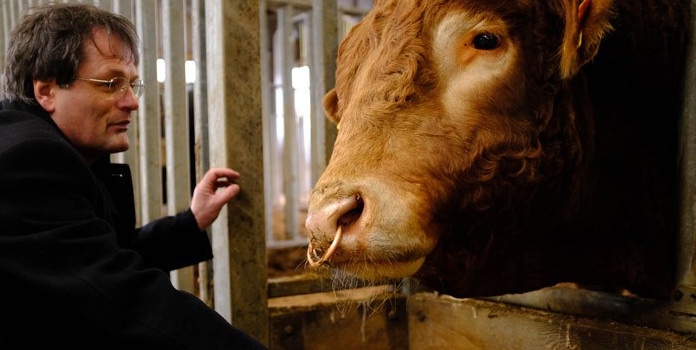Study identifies 'thousands' of novel rumen microbes
Archaea are rumen bacteria that help inform how cattle digest plant materials.
August 12, 2019

Cutting-edge DNA technologies have discovered thousands of microbes in cows’ stomachs that could improve meat and dairy production as well as keep cattle healthy, according to an announcement from Scotland's Rural College (SRUC).
The findings build the "clearest picture yet" of how the microbes in the rumen help cattle digest and extract energy from their food, SRUC said.
Researchers from SRUC, the University of Edinburgh’s Roslin Institute and the Rowett Institute at the University of Aberdeen in Scotland analyzed the rumen contents of hundreds of cows and discovered thousands of bacteria and archaea, a separate group of single-celled organisms, the announcement said.
SRUC professor of animal genetics and microbiome Rainer Roehe said, “We’ve identified some 5,000 novel genomes of microbial species in the rumen that all play a vital role. Not only do they enhance breeding and nutrition to reduce greenhouse gas emissions from cattle, [but] they also improve production efficiency, product quality and animal health.”
Pinpointing which microbes are essential for livestock well-being and food production could inform future breeding programs.
SRUC said the microscopic organisms provide cattle with nutrients and energy, contribute to animal health and, as a byproduct, release methane — a concern for global warming.
The latest research follows up a 2017 study by the same team that analyzed DNA data from 42 cows. Prior to this study, scientists had been unable to link DNA analysis to food digestion, animal health and greenhouse gas emissions.
“The cow rumen is a gift that keeps on giving. We were surprised by how many completely new microbes we have discovered, which is far more than in our previous study. The findings will inform studies of cow health and meat and dairy production for many years to come,” professor Mick Watson, head of genetics and genomics at Roslin, said.
The team used the latest DNA technologies, including a handheld sequencing device that can quickly generate DNA data that are incredibly long and detailed, which allowed the researchers to completely sequence the genomes -- from beginning to end -- of several new bacterial species.
Studying samples from 283 cows, they identified almost 5,000 new strains of microbes and more than 2,000 novel species that previously had not been categorized by science, SRUC said.
Furthermore, SRUC noted that hundreds of thousands of novel enzymes, whose instructions are encoded in the DNA, may have potential uses as biofuels or in the biotechnology industries. By analyzing their genetic information, the team pinpointed previously unknown enzymes that can extract energy and nutrition from plant material.
The study was recently published in Nature Biotechnology.
You May Also Like



